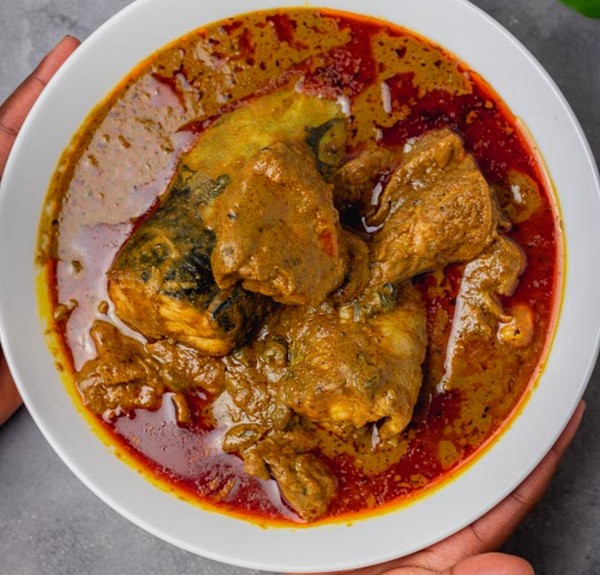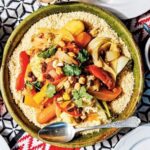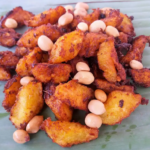In the vibrant culinary landscape of West Africa, Banga Soup stands out as a beloved dish that showcases the rich flavors and cultural heritage of the region. This traditional soup, also known as Ofe Akwu or Palm Nut Soup, is a culinary delight made from the extract of palm fruits. With its velvety texture, aromatic spices, and diverse ingredients, Banga Soup offers a truly satisfying and flavorful experience.
Origins and History
Banga Soup is deeply rooted in the cultural traditions of various West African countries, including Nigeria, Ghana, and Cameroon. Palm fruit, the primary ingredient of the soup, has been a vital part of the region’s cuisine for centuries. The soup has evolved over time, incorporating different local ingredients and preparation methods, while still maintaining its signature flavors.
The Ingredients
The key ingredient that gives Banga Soup its distinct flavor is palm fruit extract. Palm fruits are harvested and processed to extract the red oil, which forms the base of the soup. This oil imparts a rich and unique taste that is synonymous with Banga Soup.
To enhance the flavor and add depth to the soup, a variety of ingredients are used, including assorted meats such as beef, goat, or fish, along with smoked or dried fish. Vegetables like bitter leaves, ugu (fluted pumpkin), or spinach are often added to provide a balance of flavors and nutritional value. A combination of spices and herbs such as crayfish, onions, garlic, and local seasoning blends further enhance the taste of the soup.
The Preparation
The preparation of Banga Soup requires patience and attention to detail. The palm fruit extract is simmered with water to extract the flavorful oil, which rises to the surface. The oil is then separated and used as the base for the soup. The assorted meats and fish are cooked separately until tender and added to the soup, along with the vegetables and spices. The soup is simmered on low heat, allowing the flavors to meld together and create a harmonious balance.
The result is a luscious and aromatic soup with a velvety texture. The combination of the palm fruit extract, meats, and vegetables creates a depth of flavor that is both comforting and satisfying. Each spoonful of Banga Soup transports you to the heart of West Africa, where the aromas of simmering pots and the flavors of traditional spices fill the air.
Serving and Accompaniments
Banga Soup is typically enjoyed with a starchy side dish such as pounded yam, fufu, or eba. These staple foods provide a hearty and satisfying complement to the rich flavors of the soup. The combination of the creamy soup and the soft, dough-like texture of the side dish creates a perfect harmony on the plate.
Garnishes such as chopped fresh herbs, like basil or ugu leaves, can be sprinkled on top of the soup to add a burst of freshness and visual appeal. Additional condiments such as chili peppers or palm oil can be served on the side for those who prefer an extra kick of spice or richness.
A Flavorful Culinary Journey
Banga Soup is a true reflection of the culinary heritage and diversity of West Africa. Its rich and flavorful profile, along with its cultural significance, makes it a beloved dish among locals and a unique culinary experience for those exploring West African cuisine. Whether enjoyed in a traditional household or a local restaurant, Banga Soup offers a flavorful journey that celebrates the vibrant flavors and traditions of the region.
Banga Soup, also known as Ofe Akwu or Palm Nut Soup, is a testament to the rich culinary heritage of West Africa. Its velvety texture, aromatic spices, and diverse ingredients create a symphony of flavors that delights the senses. From the vibrant red color of the palm fruit extract to the tender meats and vegetables that simmer in the pot, Banga Soup captures the essence of West African cuisine in every spoonful. So, embark on a culinary adventure and savor the richness of Banga Soup—a true West African treasure.















